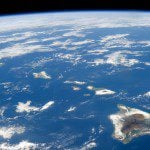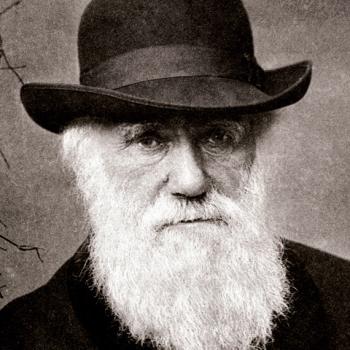
(Wikimedia Commons public domain image)
***
First, though: Sunday — tomorrow — marks the 177th anniversary of the murder of the Prophet Joseph Smith by a mob in Carthage, Illinois. I don’t think it morbid or expressive of a persecution complex but, rather, entirely fitting and appropriate to reflect for at least a few moments on that event and on the lives of Joseph and his brother Hyrum. Here is something at Meridian Magazine that can help you to do that:
“Eyewitness Accounts of the Martyrdom: A Photo Essay”
Be sure to read the captions, which come from contemporary records.
Another way of remembering the Prophet Joseph, of course, is to attend a screening of the Interpreter Foundation’s film Witnesses. Find out whether or not the movie is being shown in a theater near you by going to the “Get Tickets” button at witnessesfilm.com. If it isn’t, click on the button marked “Bring Witnesses to your city this summer” and follow the simple directions there.
I’m pleased to report, by the way, that Witnesses was the top grossing film at AMC Theatres Boston Commons 19 last night.
***
I extract, for my notes toward an intended book, a couple of passages from Alister E. McGrath, A Fine-Tuned Universe: The Quest for God in Science and Theology (Louisville, KY: Westminster John Knox Press, 2009). Dr. McGrath earned doctorates in theology and in intellectual history from the University of Oxford. And, oh yes, prior to those two doctoral degrees, he had also earned a doctorate in molecular biophysics — likewise from Oxford.
[W]hat would have happened if there were no liquids at all? It is not an idle question. Victor Weisskopf (1898-2002), director general of CERN (the Geneva-based European Organization for Nuclear Research) from 1961 to 1965, pointed out that, from a purely theoretical perspective, liquids are something of an anomaly:
The existence and general properties of solids and gases are relatively easy to understand once it is realized that atoms or molecules have certain typical properties and interactions that follow from quantum mechanics. Liquids are harder to understand. Assume that a group of intelligent theoretical physicists had lived in closed buildings from birth such that they had never had occasion to see any natural structures. Let us forget that it may be impossible to prevent them to see their own bodies and their inputs and outputs. What would they be able to predict from a fundamental knowledge of quantum mechanics? They probably would predict the existence of atoms, of molecules, of solid crystals, both metals and insulators, of gases, but most likely not the existence of liquids.
The point lying behind Weisskopf’s comment is that the existence of the liquid state is actually somewhat fragile, depending upon a certain specific degree of intermolecular attraction (generally known as the van der Waals force). Even the existence of the liquid state itself reflects certain constants of nature. Yet water turns out to be quite a remarkable liquid. (144-145)
Dr. McGrath provides a handy list of eight of water’s exceptional qualities:
- The liquid range of water at normal atmospheric pressure is 0ºC–100ºC, which results in its being present in a liquid form over most of Earth’s surface. (This, of course, is as much a statement about the ambient temperature of the earth as about the usual properties of water.)
- The density of liquid water does not change rapidly with temperature and has a maximum near 4ºC.
- As a result of this anomalous density behavior, ice floats on water, so that there is often liquid water below solid water in colder environments.
- The latent heat of water is unusually high, which means that it is less easy to evaporate than “normal” liquids.
- Water exhibits an anomalously high specific heat capacity, thermal conductivity, and surface tension.
- The dielectric constant of water exceeds that of all pure liquids except hydrogen cyanide and formamide, so that water has an exceptional capacity for stabilizing polar and ionic species in solution.
- The high polarity of water as a solvent forms the basis for the intricate interplay of hydrophobic and hydrophilic interactions that shape biochemical macromolecules, such as enzymes and nucleic acids, into their biologically active forms. The water-lipid disparity in polarity drives the self-organization of cell membranes that provide essential compartmentalization of biological processes.
- The solvent properties of water also engender CO2 acid-base chemistry that serves effectively both to distribute carbon atoms and to buffer living tissues near pH neutrality. (146)
In the future, I’ll try to unpack Dr. McGrath’s list and to briefly outline the significance of each item on it. In the meantime, though, just a bit more from Dr. McGrath himself:
While certain individual properties of water may have parallels with alternative solvents, the ensemble of properties of water remains unique and of considerable significance to the origins and development of life. Water designates a system, not a collection of individual isolated chemical and physical properties. While other solvent systems may at points appear superior to water, it is the sum total of their properties that ultimately matters. Water possesses a suite of distinctive features that mark it out from its alternatives.
Water has many properties which seem to be indispensable for the functioning of proteins and biological cells. It is an excellent solvent for ions, which play a crucial role in nerve signaling, enzymatic processes, biomineralization, and some aspects of the behavior of DNA. Water permits intermolecular interactions such as hydrogen bonds and hydrophobic forces, the former playing an important role as bridges between protein-binding sites and their substrates, and the latter in protein folding and protein-protein interactions. The well-known ability of water to absorb and lose heat without undergoing a large temperature change provides thermal cushioning, shielding cells and organisms from wild temperature swings. No other known liquid combines all of these properties in this systemic manner. (146-147)
***
And, last but not least, I call your attention to this inspiring 5.5-minute non-Church video:
Motorcyclist Who Identifies As Bicyclist Sets Cycling World Record












